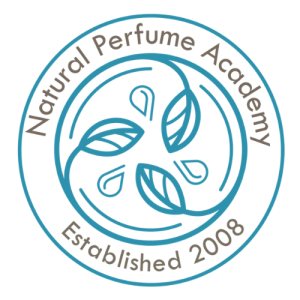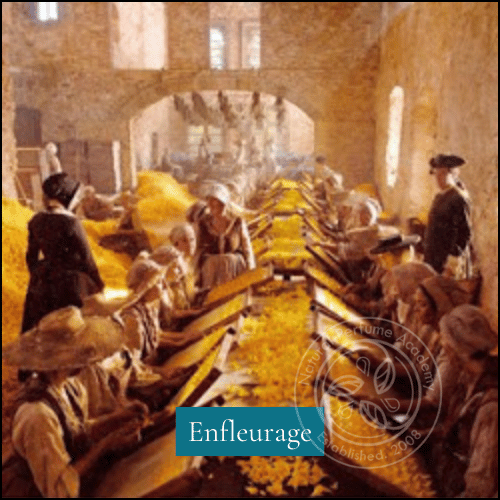Natural Perfume Academy Main Glossary

Welcome to the Natural Perfumery Glossary
The Natural Perfumery Glossary is a comprehensive public resource designed for all natural perfumers, whether you're a seasoned professional or just beginning your journey. This glossary serves as an educational tool, offering detailed definitions and insights into a wide range of natural perfume materials and terms.
Our entries cover various aspects crucial to the art and science of natural perfumery, including:
- Description and Characteristics: Detailed profiles of natural ingredients, including their origins, extraction methods, and unique olfactory qualities.
- Blending Suggestions: Insights into what other materials a particular ingredient pairs well with, helping you create harmonious and well-rounded compositions.
- Usage and Applications: Practical advice on how to incorporate each ingredient into your perfume creations.
- Safety and Regulatory Issues: Important information on the safe use of materials, including any relevant regulatory considerations.
At the Natural Perfume Academy, we are committed to fostering a deep understanding of natural perfumery through education and certification. Our glossary is a testament to this commitment, providing a valuable reference to support your ongoing learning and mastery of natural perfume making. Explore the glossary to enhance your knowledge and craft exquisite, all-natural fragrances with confidence.
Special | A | B | C | D | E | F | G | H | I | J | K | L | M | N | O | P | Q | R | S | T | U | V | W | X | Y | Z | ALL
E |
|---|
Eau de CologneTitle: Eau de CologneAlso known simply as Cologne, it refers to a type of fragrance composition characterised by its fresh, citrusy, and light scent profile. Eau de Cologne typically contains a high proportion of citrus oils such as bergamot, lemon, and orange, giving it a vibrant and refreshing aroma. The composition generally consists of approximately 3-5% perfume concentration diluted in a mixture of alcohol and distilled water. Originally developed in Cologne, Germany in the 18th century by Italian perfumer Johann Maria Farina, Eau de Cologne is known for its invigorating and revitalising qualities, making it a popular choice for daytime use and warmer climates. It is valued for its crispness and ability to provide a clean, brisk fragrance experience. | ||
Eau de ParfumTitle: Eau de ParfumEau de Parfum (EdP) is a category of fragrance known for its higher concentration of perfume oils compared to other types. Typically containing between 8-15% perfume composition blended with alcohol, Eau de Parfum strikes a balance between potency and elegance. In some formulations, a small amount of distilled water or floral hydrosol (less than 5%) may be added to enhance the fragrance profile without diluting the intensity of the scent. This concentration level gives Eau de Parfum a longer-lasting and more pronounced fragrance presence on the skin compared to lighter formulations like Eau de Toilette or Eau de Cologne. Eau de Parfum is favored for its depth and sophistication, making it suitable for both daytime and evening wear, offering a richer olfactory experience that evolves over time. | ||
Eau de ToiletteTitle: Eau de ToiletteEau de Toilette (EdT) represents a popular category in modern perfume making, known for its balanced composition and versatility. Typically comprising a perfume oil concentration ranging from 4 to 8%, blended with alcohol, Eau de Toilette strikes a middle ground between lightness and longevity. To refine the fragrance profile, a small percentage of distilled water or floral hydrosol is often incorporated, enhancing the scent without compromising its character. Eau de Toilette is widely favored for its fresh and vibrant notes that offer a pleasant and enduring fragrance experience suitable for daily wear. Its moderate intensity makes it an ideal choice for various occasions, providing a refined scent that evolves gracefully over time on the skin. | ||
Enfleurage | ||
EssenceTitle: EssenceIn perfumery, essence refers to the concentrated aromatic oils extracted from natural raw materials such as flowers, fruits, spices, woods, and resins. These essences are the fundamental building blocks used by perfumers to create fragrances. Each essence contributes its unique scent profile, ranging from floral and fruity to woody and spicy, ensuring diversity and complexity in perfume compositions. Extracted through various methods such as distillation, expression, and enfleurage, essences form the core ingredients that define the character and quality of natural perfumes. | ||
Essential OilTitle: Essential OilEssential oils are volatile aromatic compounds extracted from botanical sources through processes like distillation or cold-pressing. These oils capture the characteristic scents and therapeutic properties of plants, making them prized ingredients in natural perfumery and aromatherapy. Steam Distillation: This method involves passing steam through plant material in a closed system. The steam causes the release of essential oils from the plant cells, and upon cooling, the mixture separates into water and essential oil, with the oil floating on top. Expression (Cold-Pressing): Used primarily for citrus fruits such as lime, bergamot, and orange, this technique involves mechanically pressing the rind of the fruit to extract the essential oil. Unlike steam distillation, expression does not involve heat, preserving the delicate aroma of citrus oils. Essential oils vary widely in scent and therapeutic properties, providing natural perfumers with a diverse palette to create fragrances that range from citrusy and fresh to floral and woody. | ||
ExpressionTitle: ExpressionExpression is a method used to extract aromatic materials, specifically essential oils, from plant sources, primarily citrus peels. Unlike steam distillation, which uses heat and steam, expression involves mechanical pressure to squeeze out the volatile oils contained in the rind or peel of fruits. Process: Citrus fruits such as oranges, lemons, and bergamots are commonly processed using expression. The fruit peel is mechanically pressed to rupture the oil-containing glands, releasing the essential oil along with some of the fruit's aromatic compounds. The resulting oil is then collected and used in natural perfumery, cosmetics, and aromatherapy. Expression is favoured for citrus oils because it preserves the fresh, vibrant aroma of the fruit without exposure to heat, which can alter or degrade the delicate citrus scent. This method ensures that the extracted oils retain their true fragrance and therapeutic properties, making them valuable ingredients in fragrance compositions and other applications. | ||
ExtraitTitle: ExtraitExtrait, also known as extrait de parfum or pure perfume, represents the highest concentration of scent in perfume making. It typically contains between 15% to 30% perfume composition blended with alcohol or another diluent. Characteristics: Extrait is revered for its rich and intense fragrance profile, offering a potent olfactory experience that lingers on the skin for an extended period. Due to its high concentration of aromatic compounds, only a small amount is needed to achieve a lasting scent, making it one of the most luxurious and long-lasting forms of fragrance. Application: Extrait is often preferred for special occasions or evening wear, where its deep, complex notes can unfold and evolve over time. Its luxurious nature and high concentration make it a coveted choice among perfume enthusiasts and connoisseurs. Production: The production of extrait involves meticulous blending of essential oils, absolutes, and other aromatic ingredients with a carefully measured amount of alcohol or diluent. This meticulous process ensures that the final product maintains its intensity and integrity. | ||


